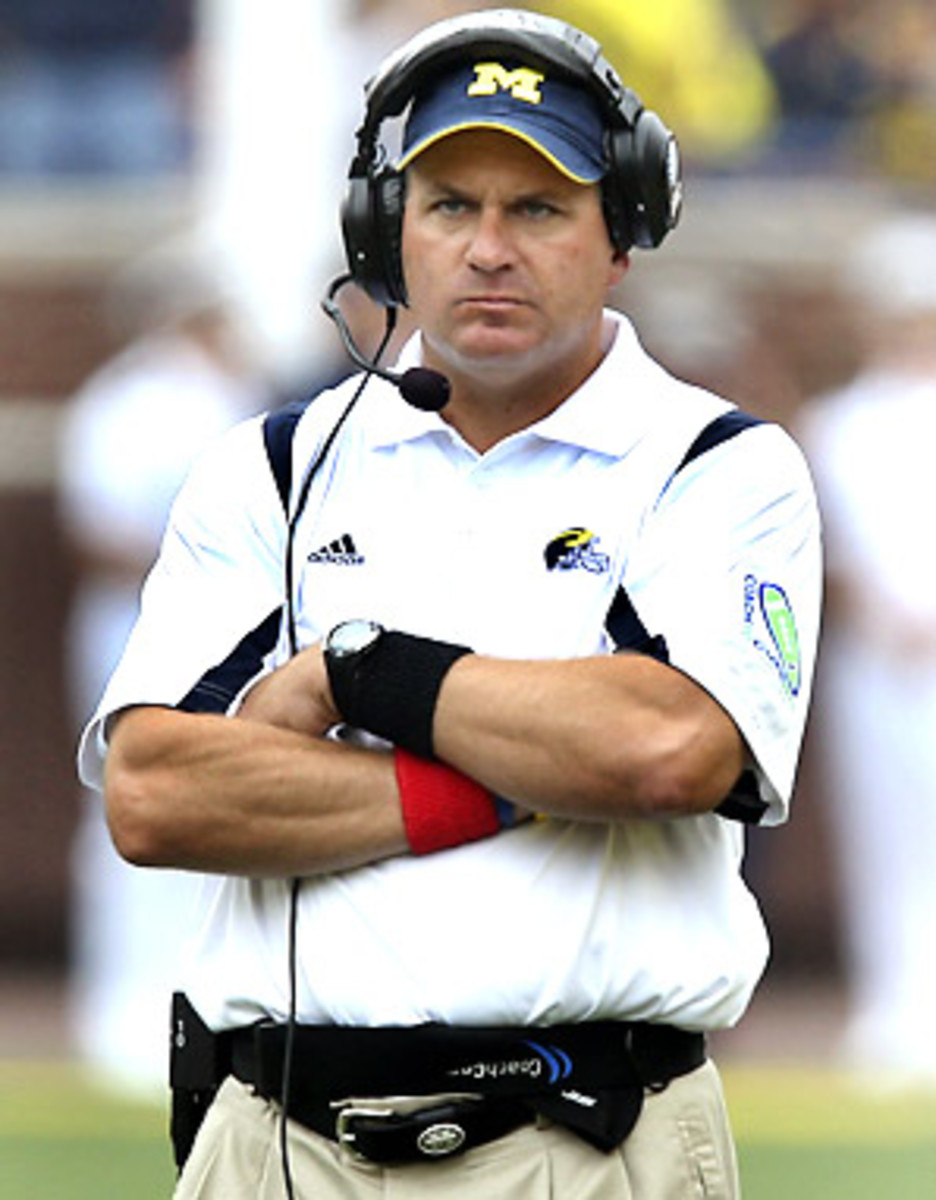Michigan's transparency doesn't lessen burden on Rodriguez
As for the abridged version, all you need to know is this: The school acknowledges it screwed up. It admonished seven individuals, including Rodriguez, for lack of oversight, breakdowns in communication and an overall "failure to monitor" various day-to-day elements of the program. Its self-imposed punishment includes forfeiting 130 hours of practice time (double the amount it allegedly exceeded) over the next two years; reducing its number of "quality-control" staff from five to three and limiting their practice involvement; and imposing two years probation, which, while seemingly meager, still represents the first such stint in the fabled history of Michigan's program.
The school largely agreed with the NCAA's findings, with one notable exception. When the allegations were initially released, I wrote that the most alarming charge was the claim that Rodriguez "failed to promote an atmosphere of compliance." Michigan agreed Rodriguez bears blame for the situation, but that, essentially, it wasn't for lack of trying. While many believe Michigan will fire the third-year coach if his team flops on the field again this fall, the school sent a pretty strong message that, for now, it still believes in its guy.
The NCAA's Committee on Infractions will get the final say on both Rodriguez's culpability and the other allegations come August. Don't be surprised if the committee adds to the school's own self-imposed punishment (it usually does), but don't expect anything major, either. Maybe another year's probation. Maybe a couple of docked scholarships, which the school apparently deemed unwarranted based on past precedent. The USC/Reggie Bush scandal, this is not.
Since the Detroit Free Press first leveled accusations of excessive practice time last September, it's been tough to get too indignant over something any semi-aware follower of the sport understands takes place to some extent at most football-playing factories. It's a troubling but largely unavoidable reality of the sport that players are asked to put in far more time than the straight letter of the law allows, and that coaches constantly skirt the gray area surrounding such rules. If nothing else, Michigan's exhaustive investigation shows just how dependent programs are on compliance departments and other administrators to monitor said activities, and what a gargantuan headache it must be.
Ultimately, Michigan's punishment fits the crime, which was never an overly egregious one. Michigan fans' greatest concern was never whether the NCAA would "drop the hammer" on their program; it was the additional stain now associated with the already embattled Rodriguez. The school defended him to some degree Monday, but he's still the CEO of a program about to face probation. He's still a coach who needs to win at least eight games this fall, or else -- but that would have been true with or without that 89-page letter.





